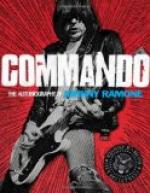While the officers were holding a council of war, Malherbe and I rode off to our commando. At Klipstapel we were allowed a few days’ breathing time, and there we prepared for the night attack on Smith-Dorrien’s camp, to the north of us. But our guide lost his way in the dark, and we had to return. It was decided, nevertheless, to attempt the attack the following night at Chrissiesmeer, where the camp was then. We had everything in our favour. We were a strong force of many commandos, and the enemy’s force was not much larger.
That evening we were placed in quite a different order from the usual one. The men of each corporal’s division rode next to each other. The Commandant or Veld-Kornet at the head, followed by the corporal with his ten or fifteen men riding abreast, was followed by the next corporal riding abreast with his men, etc. On looking back from the top of the hill in the moonlight, one saw a broad dark mass of fierce, determined men. Nearly every burgher had one or two extra horses, mostly mares with foals, that we had commandeered and trained during our retreat on the Hoogeveld. At that time every horse, trained or untrained, was put to use. It was a pity that the mares with their foals were not left behind, as they made a terrible noise with their whinnying. We walked our horses; we were not allowed to utter a word or to light our pipes—that was reasonable; but the neighing of the horses was not exactly in accordance with our silence. Every now and again, when the whinnying of the mares was at its worst, some burgher or other would give vent to an exclamation of impatience. Every now and again someone or other would light his pipe, taking care that neither the Veld-Kornet nor the enemy should see it. A dead silence reigned everywhere, broken only by the mares and their foals. These beasts caused us great uneasiness, but so did the order we received that we had to shoot sharp at the beginning of the attack, but then slowly, until it became light, so as to save some of our ammunition in case of need. We had to attack in the dark then. But what if the enemy, prepared for our arrival, were to pepper at us unexpectedly from a different direction, or to point their Maxims at us?
The greatest mistake of all was that we took our horses right up to the hill on the other side of which the khakies were. The horses were tired and had ceased neighing, but we should have left them some miles behind and walked on to make the attack as soon as it was light. An uncle of mine told me that he saw some men on horseback riding over the bull, whom he took to be our spies, but they were of course the enemy’s guard.




